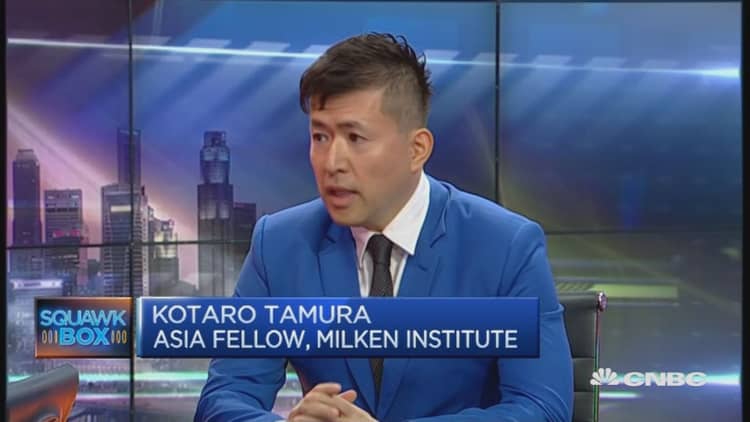As Japanese Prime Minister Shinzo Abe visits Hawaii to pay his respects at Pearl Harbor, questions remain over the future of Japan's ties with the United States when Donald Trump assumes the presidency.
While the trip is billed as the first visit to Pearl Harbor by a sitting Japanese prime minister with a U.S. president, it could be the fourth visit to the site by a prime minister of Japan. The New York Times reports that former prime ministers who have paid a visit to the site include Shigeru Yoshida and Nobusuke Kishi, the grandfather of Abe.
The visit by Abe is expected to be an opportunity for Japan to express reconciliation and more importantly, reinforce the strength of its ties with the U.S. "Prime Minister Abe is consuming a lot of his political assets to ... further build the stable base of U.S.-Japan relations," Kotaro Tamura, Asia fellow at the Milken Institute, told CNBC's "Squawkbox."
However, it might be a case of too little too late for Prime Minister Abe. "(The visit) is very important but that's not enough because (there will be) a new president in a few weeks and his policy is quite unpredictable," Tamura said.



U.S.-China relations are expected to take center stage in the global arena and this could result in greater geopolitical risks for Japan, one of the staunchest U.S. allies in the region. President-elect Trump's "contentious" approach towards China has done no favors either as this has only increased concerns in Japan about geopolitical risks stemming from U.S.-China fallout, Tamura said.
"If Trump keeps escalating the situation, … (the) worst case scenario might be … something happening in the South China Sea," Tamura added.
Even before assuming office, Trump has already succeeded in ruffling Beijing's feathers by questioning the long-held "one China" policy, proposing steep tariffs on Chinese imports and appointing vocal China critics to his administration. In response, China has seized a U.S. navy drone (which it has since returned) and most recently, sailed its only aircraft carrier into the disputed South China Sea for the first time as part of a "routine" naval drill.
"(For) Japan, we don't have other options other than hedging more towards the U.S. because we are late on the bus. And our general public, the media and the politicians will not allow hedging towards China," Tamura said, adding that China is unlikely to reciprocate such a move from Japan.
"Our (only) option is to try to convince Mr. Trump, lecturing and educating him on the importance of the region, and the complexity behind the relations otherwise, we'll be in trouble," Tamura said.

